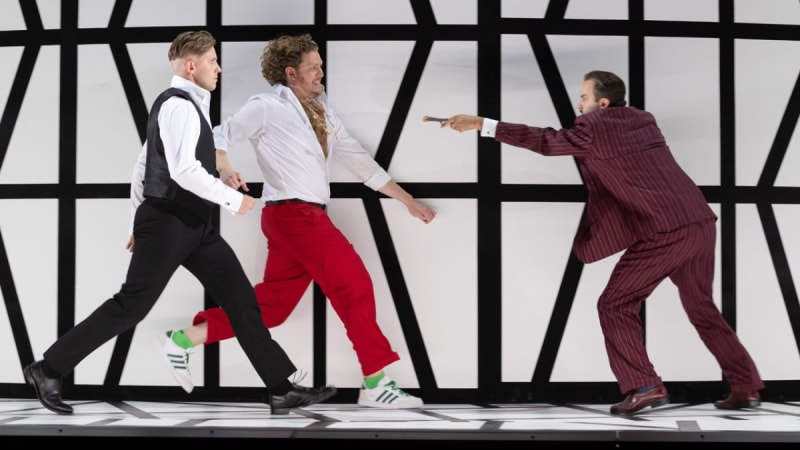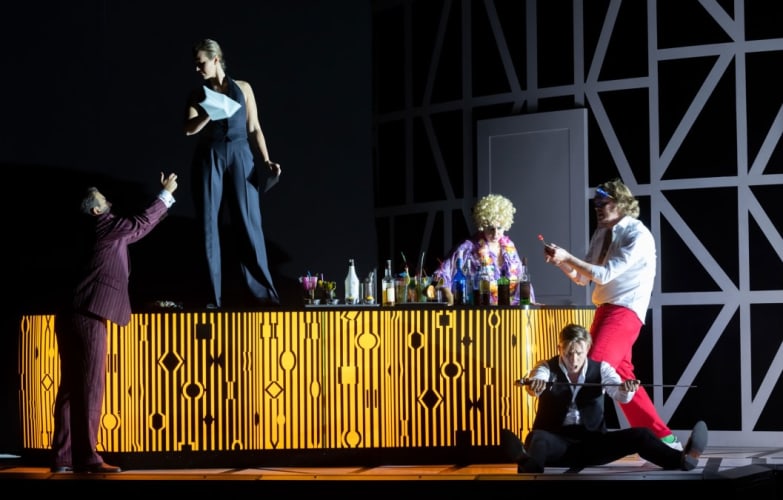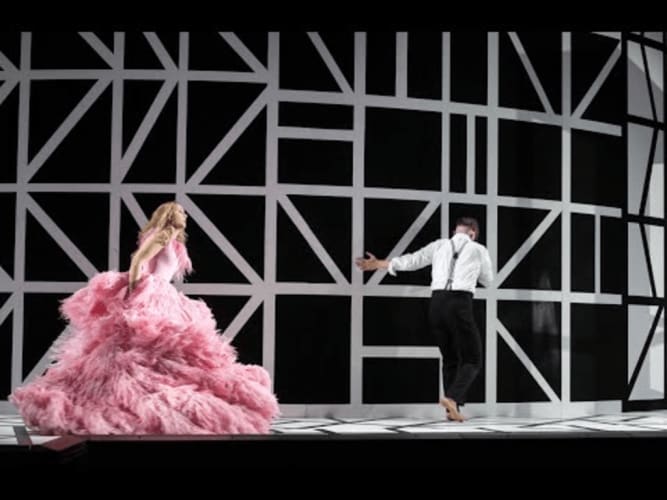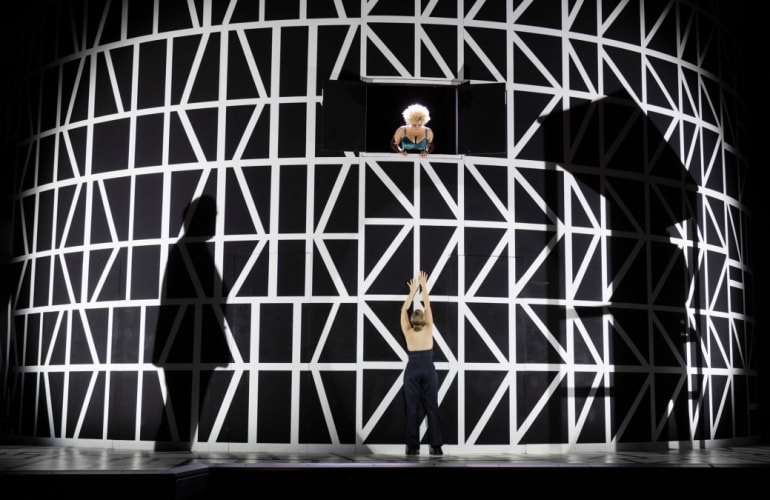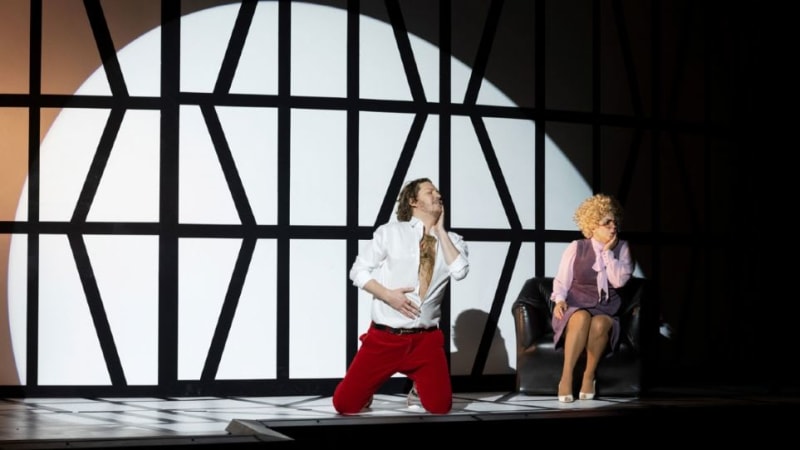If there hadn’t been Mozart, we would have Domenico Nicola Cimarosa.
When the latter had his breakthrough success in 1778 with L’Italiana in Londra, the 22-year-old Mozart had yet to write any of his great stage works, and Cimarosa soon became the most popular opera composer of his time. We know what happened after that.
He has been eclipsed ever since, but if L’Italiana is hardly in the same class as Cosi fan tutte, it is nevertheless a charming, lightweight work with a score whose pace never slackens.
Five characters come together in a London hotel: the landlady Madama Brillante, an English aristocrat Milord Arespingh, his one-time lover Livia, a Dutch merchant, and an Italian tourist, Don Polidoro, who hates the climate, the tea and the people and thinks he can make himself invisible.
The insubstantial plot is so absurd that it would be hard to squeeze any coherence out of it. Director R B Schlather takes the probably sensible decision not to try. He finds instead a walk-on part for a suit of armour, and it is surely no accident that Biana Tognocchi’s sex-starved Madama Brillante looks uncannily like another hotel matron, Sybil Fawlty.
Between each passage of recitative, Cimarosa spreads his arias equitably among of the principals, the music offering indications of the future path of Italian opera. Listen to the excellent Iurii Samoilov as an elegant, bowler-hatted Milord express his confusion and determination in "Van girando per la testa" and hear the sort of excited climax Rossini might write 40 years later.
There is something special, however, in "Dunque per un infido for Livia", the longest and most developed scena of the opera, which builds from a murmured recitative into an aria of increasing intensity, and which is delivered with delicacy and great feeling by Angela Vallone. It is one of few moments in the opera of genuine emotion.
Theo Lebow makes the most of the rather superfluous role of the Dutch merchant, his light tenor shining through some fairly routine arias, and the bass-baritone Gordon Bintner struts about to comic effect as a macho idiot from Naples.
Although guides suggest this is a satire on the English, I see it more as a kindly one about Cimarosa’s birthplace. "I want to go to Naples with you," Tognocchi sings appealingly. It’s a catchy tune that I can imagine became a hit back home.
Paul Steinberg’s set resembles the outside of the Globe Theatre (with curious overtones of a Mondrian painting) set alongside a hotel bar and a phone box. Livia first appears draped apparently only in the Union flag, and for reasons beyond me finally in an enormous gown of pink fluff by costume designer Doey Lüthi. Joachim Klein’s lighting keeps the singers in half-shadow when beyond centre-stage—a somewhat annoying effect but perhaps used deliberately to suggest some ambiguity of character.
L'Italiana in Londra may not be a masterpiece, but it is enjoyable nevertheless, evidenced by the cast still having fun at their curtain call.
